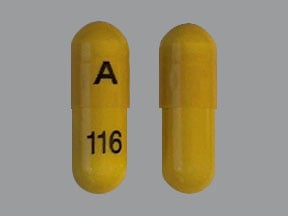
Rivastigmine Tartrate Coupons & Savings Card – Discount Prices from $41.25
Rivastigmine is prescribed to manage symptoms of dementia associated with Alzheimer's and Parkinson's diseases. While it does not cure these conditions, it can enhance memory, awareness, and daily functioning. As an acetylcholinesterase inhibitor, Rivastigmine works by inhibiting the enzyme cholinesterase, which increases the levels of acetylcholine in the brain. This helps improve communication between brain cells, supporting memory, attention, and cognitive skills. The medication is typically taken orally as capsules twice daily, with the dosage adjusted based on individual tolerance. Side effects may include nausea, vomiting, and diarrhea. Rivastigmine is available in a generic form, as the brand-name Exelon is no longer on the market. It is important to consult healthcare professionals for personalized medical advice.
Our coupons are free to use. Before paying, show the pharmacist your Rivastigmine Tartrate savings card to get your free discount. Use our filters below to edit the prescription box to match your needs. The Rivastigmine Tartrate prices will update based on your prescription needs. Above our Rivastigmine Tartrate coupons, you can change your location to see pharmacy prices and costs in other areas. We're here to help you buy Rivastigmine Tartrate at the lowest price with our prescription discount card.
My prescription
Edit
1.5MG, Rivastigmine Tartrate (180 Capsules)
Select pharmacy

CVS
$42.68
COUPON PRICE
Albertsons
$41.25
COUPON PRICE
Walmart
$44.27
COUPON PRICE
Walgreens
$46.98
COUPON PRICERivastigmine Tartrate savings card
Show this card to your pharmacist
Albertsons
$41.25
BIN
ID
PCN
GRP
019876
LHE6F30DC7
CHIPPO
LHX
Powered by
Rivastigmine is prescribed to manage symptoms of dementia associated with Alzheimer's and Parkinson's diseases. While it does not cure these conditions, it can enhance memory, awareness, and daily functioning. As an acetylcholinesterase inhibitor, Rivastigmine works by inhibiting the enzyme cholinesterase, which increases the levels of acetylcholine in the brain. This helps improve communication between brain cells, supporting memory, attention, and cognitive skills. The medication is typically taken orally as capsules twice daily, with the dosage adjusted based on individual tolerance. Side effects may include nausea, vomiting, and diarrhea. Rivastigmine is available in a generic form, as the brand-name Exelon is no longer on the market. It is important to consult healthcare professionals for personalized medical advice.
Our coupons are free to use. Before paying, show the pharmacist your Rivastigmine Tartrate savings card to get your free discount. Use our filters below to edit the prescription box to match your needs. The Rivastigmine Tartrate prices will update based on your prescription needs. Above our Rivastigmine Tartrate coupons, you can change your location to see pharmacy prices and costs in other areas. We're here to help you buy Rivastigmine Tartrate at the lowest price with our prescription discount card.
More prescriptions for Parkinson's disease
coupons from$145.86Save 48%
coupons from$47.05Save 65%
coupons from$89.08Save 93%
coupons from$99.31Save 80%
coupons from$9.93Save 72%
coupons from$5129.88Save 25%
coupons from$330.34Save 87%
coupons from$494.35Save 72%
More prescriptions for Parkinson's disease
Carbidopa Anhydrous Save 48%coupons from $145.86
Stalevo 100 Save 65%coupons from $47.05
Comtan Save 93%coupons from $89.08
Pramipexole ER Save 80%coupons from $99.31
Diphen Save 72%coupons from $9.93
Nuplazid Save 25%coupons from $5129.88
Cycloset Save 87%coupons from $330.34
Osmolex ER Save 72%coupons from $494.35
Rivastigmine Tartrate dosage forms
Use our Rivastigmine Tartrate 1.5MG coupon with prices from $41.25 for 180 Capsules. You can also use our Rivastigmine Tartrate 1.5MG coupon with prices from $2.70 for 1 Capsule. We have a Rivastigmine Tartrate 1.5MG coupon with prices from $14.26 for 60 Capsules. You can use our Rivastigmine Tartrate 1.5MG coupon with prices from $22.10 for 100 Capsules.
Dosage Quantity Price from Per unit 1.5MG 180 Capsules $41.25 $0.23 1.5MG 1 Capsule $2.70 $2.70 1.5MG 60 Capsules $14.26 $0.24 1.5MG 100 Capsules $22.10 $0.22 1.5MG 500 Capsules $71.80 $0.14 3MG 60 Capsules $14.72 $0.24 3MG 180 Capsules $42.68 $0.24 3MG 500 Capsules $71.80 $0.14 4.5MG 60 Capsules $15.94 $0.27 4.5MG 180 Capsules $42.68 $0.24
| Dosage | Quantity | Price from | Per unit |
|---|---|---|---|
| 1.5MG | 180 Capsules | $41.25 | $0.23 |
| 1.5MG | 1 Capsule | $2.70 | $2.70 |
| 1.5MG | 60 Capsules | $14.26 | $0.24 |
| 1.5MG | 100 Capsules | $22.10 | $0.22 |
| 1.5MG | 500 Capsules | $71.80 | $0.14 |
| 3MG | 60 Capsules | $14.72 | $0.24 |
| 3MG | 180 Capsules | $42.68 | $0.24 |
| 3MG | 500 Capsules | $71.80 | $0.14 |
| 4.5MG | 60 Capsules | $15.94 | $0.27 |
| 4.5MG | 180 Capsules | $42.68 | $0.24 |
| 4.5MG | 500 Capsules | $71.80 | $0.14 |
| 6MG | 60 Capsules | $20.88 | $0.35 |
| 6MG | 180 Capsules | $42.68 | $0.24 |
| 6MG | 500 Capsules | $71.80 | $0.14 |
